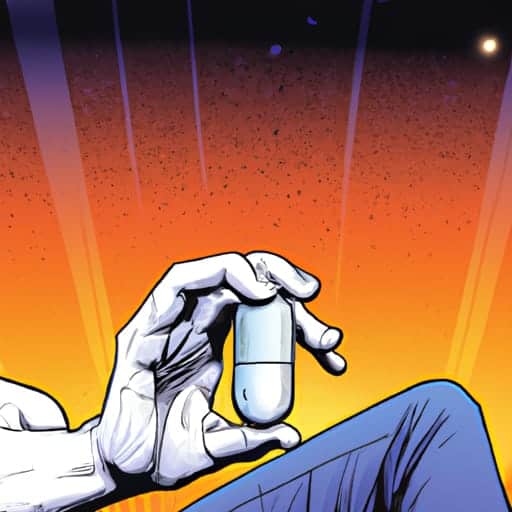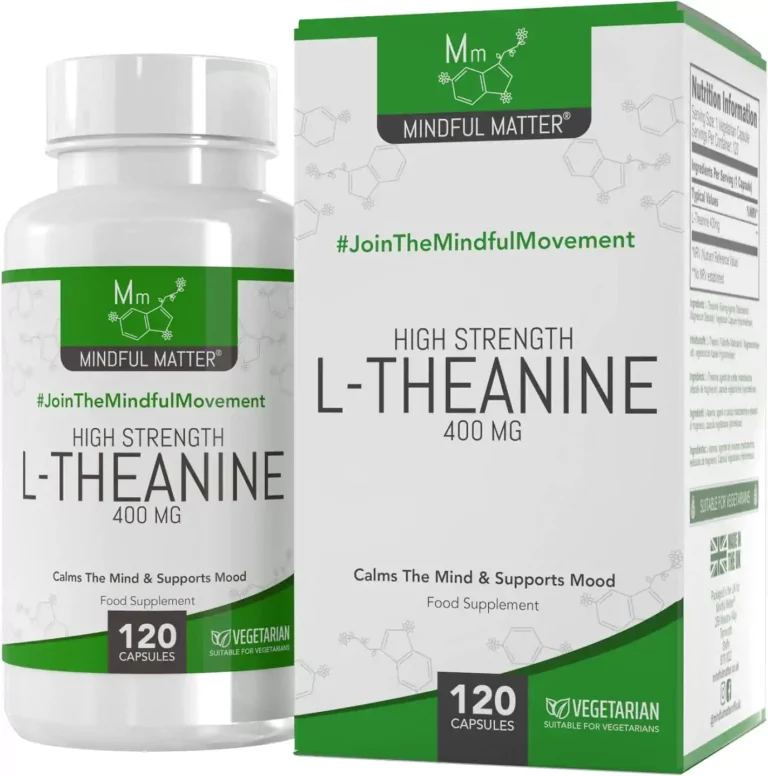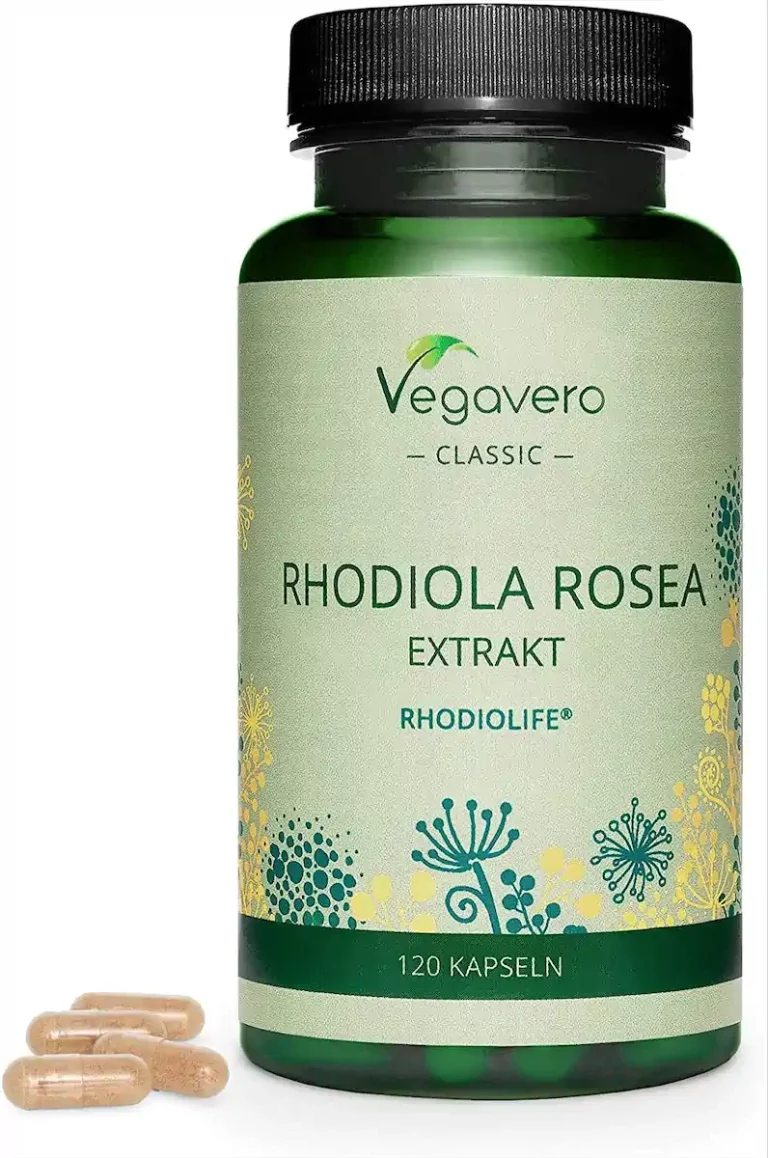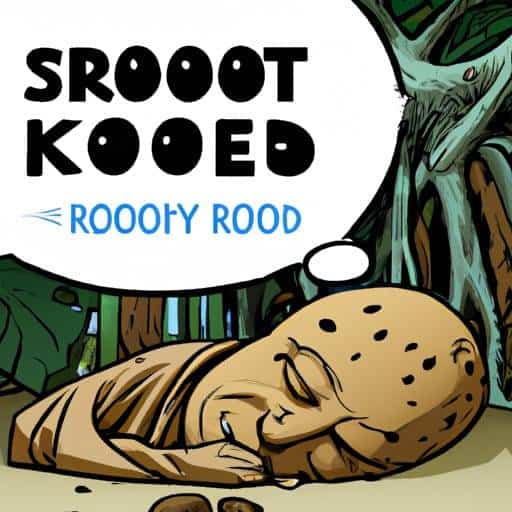Why Do People Use Nootropics? Here’s 3 Surprising Reasons.
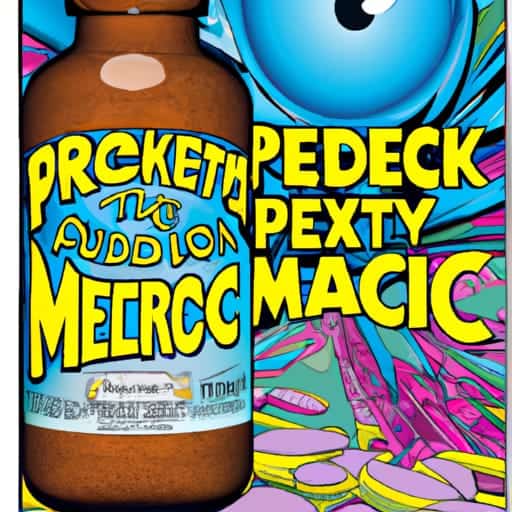
What I Found Out Surprised Me
Why do people use nootropics, anyway? Nootropics are a disparate bunch of substances, some are plant extracts, some are synthesized compounds, and yet others are purely pharmaceuticals and available only on prescription.
Taken together, these substances are called nootropics, on the model of the class of drugs known as psychotropics. Psychotropics are pharmaceuticals used in psychiatry which change your mental state.
The word nootropic comes from the Greek ‘nous’ meaning mind, and ‘trope’ meaning turning, therefore: ‘mind-turning.’
Nootropics are classed differently in different parts of the world, but generally, they are categorized as supplements or foods rather than pharmaceuticals. There is a crossover, of course, and some are plainly pharmaceuticals and only available by prescription in some countries.
People who use nootropics often get round this prescription-only barrier by ordering their supplies from countries where they are not controlled by prescription, often India. But, you can get almost anything on the Internet these days, whether it’s legal where you live or not.
I wanted to know what prompts people to use nootropics.
I considered three different sources to see if I could get to the bottom of why people using nootropics would introduce these chemicals into their bodies.
I conducted a rough-and-ready analysis, using discourse analysis and frame theory to investigate what’s going on with this market.
Like I say, it was rough-and-ready, but it yielded some interesting information.
Frame Theory And Discourse Analysis
I love high-falutin’ theories that sound brilliant but more-or-less state the obvious. It makes us both look smart, me for bringing out the theory, you for getting it in a lightning flash.
Discourse Analysis is a method of looking at spoken or written language and looking at its purpose while considering cultural rules. It considers how assumptions and messages are communicated — how we frame our beliefs and messages.
Sam Leith in his book “You Talkin’ To Me?”, published in North America as “Words as Loaded Pistols” (a much better title!) talks about assumptions that are “commonplaces in our culture”. These commonplaces are widely accepted even if there may be little evidence, or questionable evidence, behind them.
For example:
“It’s good to be kind.” Is it? How did you arrive at that belief? You took it in with your mother’s milk, with no reflection. You may reflect and still believe it, but your opinion is culturally formed. In Ancient Greece, the Spartans would leave sickly and weak children on the mountainside to die. They didn’t believe it was good to be kind; they believed it was good to be hard.
Talking about hard, it’s a commonplace belief that “Hard work deserves reward.” But really? Does it? Why?
You believe both these commonplace beliefs, don’t you? That hard work deserves reward, and it’s good to be kind seem unquestionable.
There used to be commonplaces that women don’t have souls and that one race was superior to another. Some people still believe both of those. I don’t.
One that is still widely believed is: “Natural is better than artificial.” Is it? Why is it? You tell me, but that message is one ‘frame’ that is pushed by some nootropics companies. Other companies don’t seem to care about it.
Looking at the messages coming from the communities of people who use nootropics, they aren’t so interested in herbal. They tend to be technical and refer to themselves as bio-hackers, which has a cyberpunk, sci-fi sound to it.
People who favour the herbal over the artificial are more ‘yoga-adjacent.’ Natural is a big message to push with supplements, but not so crucial with nootropics.
Supplements benefit your health; nootropics improve your mind. Different messages. Different communities.
Rhetoric
Rhetoric is the ancient art of using words to persuade others. It is a big area that has been refined and commented on for two and a half millennia in Western Culture, starting with Gorgias (485–373BC). The Greek philosopher Aristotle set out three methods of persuasion: Logos, Ethos & Demos. You persuade people by reference to facts (and quasi-facts, or science-babble too) which is Logos, through emotion (Ethos) and by Social Proof (Demos).
Not quite the same, but similar, is the suggestion that you are persuaded by appeals to “The Powerful, The Many and the Close.”
So, there’s a new aftershave out.
Oh yeah?
Keanu Reaves uses it — The Powerful.
Oh?
It’s got five thousand five-star reviews on Amazon — The Many.
Ah.
Your brother loves it — The Close.
I’ll try some.
Rhetoric is used in all selling messages. My next step is to look at the messages being communicated. What do people who use nootropics want from their drugs?
Be their words, shall ye know them. Let’s read what they say.
“I teach you the Superman. Man is something that should be overcome. What have you done to overcome him?”
Friedrich Nietzche, Thus Spake Zarathustra

Nootropics Companies On LinkedIn
I searched Nootropics in LinkedIn, which turned up a whole lot of companies involved in this field. I then looked through their promotional messages to see what benefits they were claiming for their products and to try to understand the critical statements about nootropics from this supply side.
I am not making any judgement about the companies, good or bad, or reviewing their products; I’m just trying to understand their messages.
Nootropics from Florida
This company says:
“Nootropics are expressly made to help increase mental performance.”
Mental enhancement is a major claim. They also say:
“They are great as long as you know how to use them.”
Hmm. I think they are saying here: these are not just for anyone. An appeal to an elite? Are our people who use nootropics wannabe Supermen? In the Nietzschean rather than the DC comics sense.
“They have been used to treat conditions like Alzheimer’s disease. While they were originally designed to treat people with medical problems, today healthy people often use them to improve focus and increase productivity.”
This is an appeal to the authority of science. Also, an implied safety; if they are used for Alzheimer by doctors, they must be safe. I’m not sure they are generally used in medical practice to treat Alzheimers either, but we’ll let that go. Maybe somewhere they are.
“Additionally, a nootropic is usually developed to address a specific mental health issue.”
So you can use Nootropics to enhance your mental performance, but you can also use them to treat anxiety and depression, which are the most common mental health problems.
Nootropics.com
“..the world’s most powerful, effective and safe cognitive enhancers.”
Powerful cognitive enhancers but safe too.
“Nootropics are synthetic compounds that help you to accomplish your goals through improved cognition, better recall and crystal-clear focus.”
This reminds me of the commercials of the 1960s. In those days, everything technological was good. “The White Heat of Technology!” This shiny 1950s-60s period It was sandwiched between the late 19th Century hankering back to craft and nature, and the growth of the environmental movement with its yearning for natural products. On both sides of it people wanted to retreat to nature, but in the 1960s commercials used “scientific” jargon to enhance their appeal.
Clearly here, the fact that nootropics are synthetic (not all are, in fact) is pushed as a good thing. I think we need to understand synthetic here as representing an improvement on nature, like gene therapy. Again, we’re talking about the Superman.
“Nootropics allow users greater control over their states, moods, and cognitive abilities”.
Again an implication that nootropics might help with anxiety and depression (“moods”)
“Useful for their productivity and motivational effects, nootropics provide a boost for getting essential tasks done. Ideal for high-pressure cognitive work such as studying, essays and exams.”
Again a promise of improved performance but specifically aimed at those people who need to pass academic tests. “High-pressure” sounds cool. Only the elite can handle high-pressure studying.
“Additionally, some users take nootropics for a boost in social ability, including benefits to confidence, extroversion and verbal fluidity. Ideal for public speaking, presentations and parties.”
So you will perform better, but you will socialize better. You will become more popular.
“Some nootropics also provide neuroprotective effects, supporting brain health and stimulating the generation of new neurons. Maintain and support the engine of your productivity and creativity.”
Is this a hint that nootropics will protect you from dementia again maybe? But also about performance. This is the healing angle though
Pure Nootropics
This is a company from Albequerque. I think it’s interesting that they use the word ‘pure’ in the name. We have seen that there is a debate between ‘synthetic=good’ and ‘natural=good’.
Supplement users are looking for health and may be categorized broadly as liking ‘natural’ things. Bio-hackers are looking for performance and like technology and ‘synthetic’ (implying scientifically improved?) products.
“NM Pure Nootropics was started in 2013 by health and fitness enthusiasts with an interest in improving their own cognition and brain function.”
Again we have the emphasis on performance, but also health and fitness are in there, and a need to have safe ingredients is contained in:
“Lacking good information and transparent providers, we decided to source the nootropics ourselves”.
Nootrobox
They are going to source the nootropics themselves. This is bespoke and boutique. Nootrobox hail from San Francisco. They just received a $2 Million seed-investment. So somebody clearly believes in them. I think nootropics are going mainstream actually, so watch this space. But what do Nootrobox claim?
“We offer premium nootropic stacks that will make you a better you by improving your memory, resilience, and cognitive functions”.
“Each ingredient in our products are specifically selected for its efficacy shown by double-blind, peer-reviewed studies.”
An appeal to science again. This is both to appeal to authority and to hint at futurism and that using nootropics helps the bio-hacking elite to go beyond the human.
Momental Herbal Nootropics
They are from Austin, Texas.
“As practising clinicians, we have worked tirelessly to aid the lives of our patients holistically and firmly believe that being healthy begins with proper nutrition.”
“Clinicians”, so trained, qualified (=safe) experts. The name herbal places them on the ‘natural’ side. That’s confirmed by the following message.
“We’ve been experimenting for years trying to optimize the best all-natural formula that would give us all the tools we desired for performance and productivity in all aspects of life.”
I hear the natural formula. Natural is good. Except when synthetic is better.
“Basically we wanted to be our most active and physical selfs all day long until it was time to hit the pillow”.
Again, about enhancement, being better.
“Whatever your daily grind is we know you’ll be best equipped to own it and crush it.”
“Grind”, “Own”, “Crush”: This is a battle, and Momental Herbal Nootropics will help you succeed.
Themes Emerging on LinkedIn
- “Nootropics enhance the normal you.” They will aid you in your struggle to be top of the pile either physically, academically or socially
- “Nootropics are scientifically based.” Therefore they must work.
- “Nootropics are safe.”
- “Nootropics are for the elite.” This is not openly said, but I feel it is implied in comments that experts are involved in nootropics, not the herd.
- “Nootropics can treat common mental health disorders.”
- “Nootropics are an improvement on nature.” I think this is in the claims that it will make you better than your baseline human self, and in the word synthetic.
- “The best nootropics are natural.” This appears is at odds with 6 above. I believe it reflects a differing positioning — are nootropics companies riding the vegan, sandal-wearing, plant-loving wave, or are they with the bio-hacking, cyborg self-improvers? There may even be a political difference here with liberals tending towards the natural, and right-wingers going with the bio hackers. I have no actual evidence for that statement; it’s just a thought.
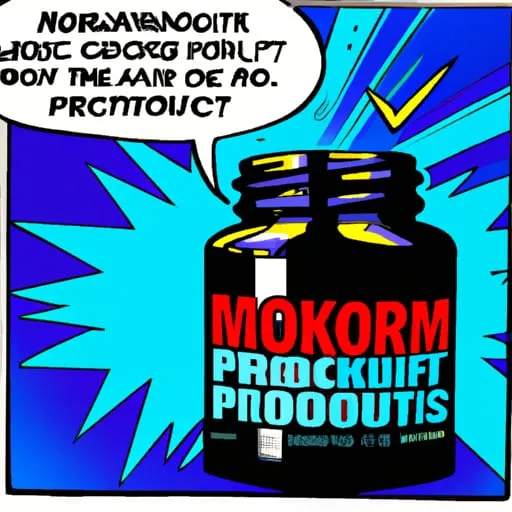
Source Two: The Nootropics Community on Reddit
Moving on from what the companies think they are selling, I thought I’d look at the nootropic users community on Reddit to see what themes they emphasize. What do they want to buy?
The leading Reddit group, r/Nootropics, has 242,000 members, and when I checked it last, there were 759 members online. There is a lot of interest in nootropics it seems!
Phrases that pop up on r/Nootropics are:
“Cognitive augmentation”.
“Transcend beyond our current animalistic traits.”
We will
There is a definite sense of these bio-hackers being hostile, or at least suspicious of “Governments” “Media and Public Officials” who want to dumb down the population to help them control it. They totally hate “Big Pharma” who they see as trying to control their supply.
This attitude smacks of the world of Mr Robot and secretive underground hackers, rather than smiling yoga-adjacent meditators. There is a definite conspiracy-believing atmosphere in r/Nootropics.
Whereas many of the Nootropics companies on LinkedIn are pushing “stacks” of nootropics like L-theanine, Rhodiola, bacopa, etc.; r/Nootropics users seem more interested in the pharmaceutical end of things.
They are looking for suppliers of piracetam and sulbutiamine, and modafinil.
For information, piracetam is a prescription-only drug in the UK, where I live, licensed for the treatment of movement disorders. Common or very common side-effects are nervousness, hyperkinesia and weight gain. Risks are bleeding and gastric ulcer.
Sulbutiamine is a synthetic derivative of thiamine (Vitamin B1). In clinical practice, we use thiamine to stave off neurodegenerative disorders caused by alcoholism. In nootropic-using circles, sulbutiamine is claimed to enhance memory, focus and improve mood.
Modafinil is a prescription-only drug used to treat narcolepsy. It has a known adverse effect on heart rhythm and shouldn’t be used by people with cardiac problems.
People on r/Nootropics are probably seeking actual pharmaceuticals because the pharmaceuticals deliver subjectively and objectively measurable effects. In contrast, the softer “natural” nootropics can sometimes make you ask: “Am I feeling different or better? Maybe. I think so…”
There are several posts on r/Nootropics from people saying, I’m taking natural nootropic X, e.g. Lion’s Mane mushrooms, and not being sure whether they are doing anything at all.
In r/Nootropics as well as those folks blaming Big Pharma and Government surveillance, and those folks seeking hard effects, there is a significant number of people talking about using nootropics to treat anxiety.
Then there are digressions into the uses and benefits of psychedelics, which remain illegal, but definitely do something! This group, to me, seems street-drug adjacent.
Most of the discussions are about which nootropics are best to enhance focus and energy or reduce anxiety or reduce depression. There are a few about increasing sex drive.
r/Nootropics are great explorers and will self-experiment with many different nootropics to see which gives the biggest effects. Conclusions vary, but there is a strong interest in the -racetam drugs such as Nefiracetam, Aniracetam, Pramiracetam.
These drugs are generally ordered on the Internet, and many are illegal without prescription. They can be seized by customs coming from overseas.
The -racetam family of drugs are used in movement disorders, and some of them like levetiracetam to control seizures. They are claimed to boost brain performance.
Piracetam seems to be the entry-level -racetam with claimed benefits for learning, memory and focus but with agitation and anxiety as side effects. The -racetams are clearly psychoactive and have a measurable and scientifically backed impact on the Central Nervous System.
Themes emerging on Reddit
There are questions and discussions about where to source the more powerful and harder to obtain pharmaceutical end of the nootropics field.
There are self-reports on self-experimentation. Discussions about which nootropics actually work.
There is a definite focus on cognitive enhancement.
There is a lesser focus on the treatment of anxiety and depression through nootropics.
There are, of course, conspiracy Theories!
But, as far as I can tell, the r/Nootropics gang do not much care about whether a product is natural or not.
They seem definitely into the synthesized pharmaceutical end of things. Neither do they seem massively concerned about the safety of products.
They remind me of my work with street drug users. I was always amazed that people who take illicit drugs were so uninterested in the safety of the substances they took. Often, they didn’t even know what was in them. All they cared about was how they felt. The hard end of the nootropics users seems similar. They are happy to import -racetams from remote and unverified production sources, as long as they give the effect.
There may be a community of nootropics users who do care about their produces being natural, but they aren’t in this group on Reddit.
Quora
From Reddit, it is but a small leap to Quora. People on Quora ask lots of questions about nootropics too. People want to know what the best nootropics are.
The question posers mostly don’t specify what ‘best’ means, whether best cognitive enhancers or best anxiety relievers.
The impression is that the Quora questioners are beginners, not like the engaged and active Reddit community.
The question answerers on Quora, on the other hand, do know what they are talking about.
Some are self-help biohackers, and others are from companies, trying to offer their products as solutions to the questions posed. However, the answers are well-researched and sound authoritative. Again, lots of reports about self-experimentation and recommendations.
Very tellingly, there is a question:
“Are there any nootropics which you can actually feel noticeably affecting you almost like an illicit drug would?”
This underlines the small subjective effect of many nootropics and the search for hard-effects.
The themes in the Quora answers are again about cognitive performance enhancement (not physical performance) and reduction of anxiety.
Reviews From People Who Use Nootropics on Amazon
The nootropics sold on Amazon are strictly legal. There is no question of anyone obtaining any prescription-only pharmaceuticals from the hard end of nootropics.
The produces on Amazon tend to be various blends of ‘natural’ nootropics, but they are generally well-reviewed.
An interesting comment from one reviewer is
“Any products that purport to be like( or as good as)..prescription drugs/supplements etc. are ( in my experience) are just smoke and mirrors.”
Again, people want a significant effect. It reminds me of legal cannabis. When cannabis became widely consumed in the West in the 1960s and 1970s the active ingredient, TCH, was about 2%. By comparison, in 2017, the TCH level in legal cannabis grown in Colorado was 17–28%. (Source)
The same is true with wine. The alcohol content of red wine now averages 13–14%, whereas twenty years ago it averaged between 11–13%.
We just want a bigger kick it seems.
People buying nootropics on Amazon give higher ratings for
“alertness and concentration improved greatly”.
“lots more energy”.
“a lot more alert, focused and tonnes of energy”.
“helps me focus and stay focused especially on mundane tasks”.
“As a serious biohacker I’ve tried so many nootropics, and few other than the family of trams (i.e., racetams) do anything they promise”.
“Wake Up in a Bottle”
“Brain Booster”.
“Concentration Enhancer”
Far less prominent on Amazon are substances that give relaxation., and the ones that do tend to offer both focus and relaxation and claim to create a state of calm alertness.
“The best “anti-frazzle” pills that I have come across”.
“They help me stop worrying as well. “
More than pure relaxation, people are looking towards some nootropics, e.g. l-theanine, as a sleep aid.
“I feel calmer and more able to cope, but the best thing for me is that now I sleep at night”.
Themes emerging on Amazon
Buyers on Amazon want a noticeable boost to alertness and mental focus.That is by far and away the most noticeable theme from purchasers of nootropics on Amazon.
There is a secondary theme about relaxation and using nootropics as anxiolytics.
This reflects what people who use nootropics say on Reddit too.
There is some overlap with the LinkedIn nootropics companies, but the companies seem to think their customers are concerned about safety and, some companies at least, pure and natural products.
Conclusion: Why Do People Use Nootropics?
It seems to me that people using nootropics want two things:
Either
- Cognitive enhancement to be able to perform tasks at a higher standard
- Cognitive enhancement to improve self-esteem by becoming the Superman
Or
- Reduction in Anxiety
People who use nootropics seems less concerned with safety than the companies that make nootropics. The reasons for this are understandable and to do with legal liability.
Perhaps surprisingly, the users of nootropics do not seem very concerned about the naturalness of their nootropics, and indeed it may be that they prefer the synthesized because it can be seen as an improvement on nature. E.g. sulbutiamine — a synthetic improvement on naturally occurring thiamine.
They are also surprisingly less concerned with scientific validation because they are prepared to self-experiment and find out whether a nootropic works for them personally.
They are not very interested in the safety of a nootropic, or at least that is not their primary concern by a long chalk. I can see why the companies want to stress safety, but the users seem to be more ‘suck it and see.’
I didn’t see much demand for the pure and natural from the engaged users of nootropics. The pure, safe, natural message will probably play better with the users of nutraceuticals!
So, if I were in charge of a nootropics company, I would target people who are anxious about their performance: People who are in environments that require them to be cognitively sharp.
Related Posts On This Blog
Can Taking Bacopa Improve Your Memory?

